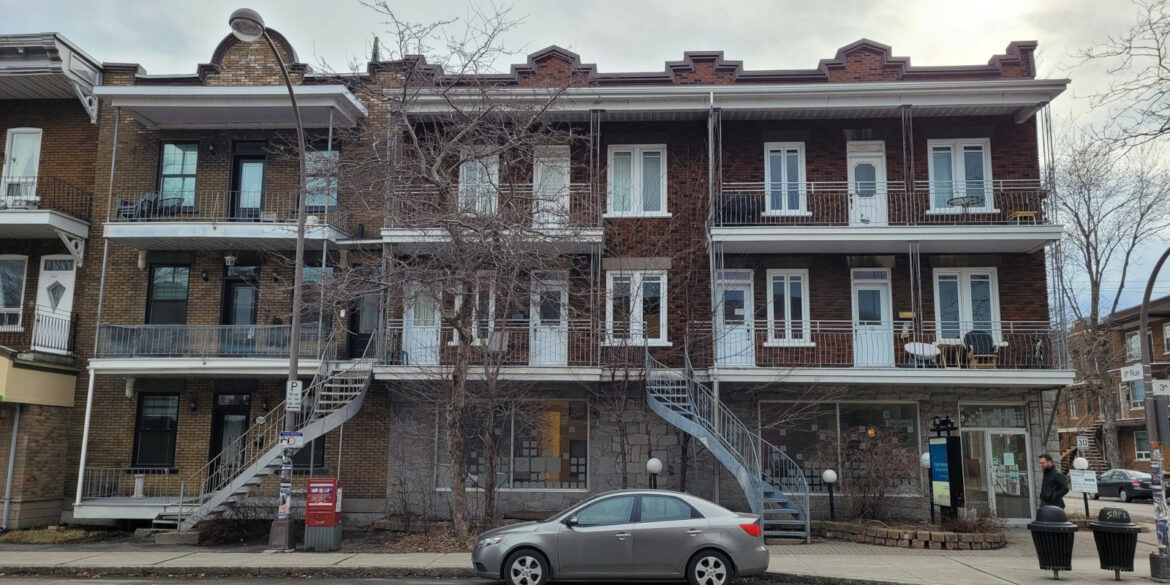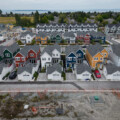I was in Quebec City earlier this year for the first time since the start of the pandemic. It’s quite possibly the most beautiful city in the country, and one of the most livable—for those who don’t face linguistic or cultural barriers, of course. But for at least a plurality of residents, things are pretty good. So it’s not surprising to me that Premier François Legault cruised to re-election. People tend not to throw out incumbents when they’re feeling good about the issues that directly impact their lives.I assume the mood is somewhat different in Anglophone and Allophone parts of Montreal, where I have not been yet this year. Given the poor showing of the CAQ in those parts, I’m guessing some of the premier’s more controversial policies are more topical. But at least in primarily francophone parts of the province, people seem pretty content.
I have a habit of talking to locals about politics when I travel. People are usually surprisingly open to sharing their views even on hot-button issues, if you ask. So I was a bit surprised by how little anyone seemed to want to talk about electoral politics during my week in Quebec City. I gave a lot of people openings to talk about politics, but no one seemed interested.People had many thoughts on things like the state of the roads (not great) and some heavily delayed infrastructure projects. I also realized that there were no Uber drivers during the morning commute because the labour market was too tight. But electoral politics? Nope. Maybe I was just there too far in advance of the election. Or maybe francophone Quebecers are particularly guarded about talking politics with outsiders. Either way, people didn’t seem too fussed about who’s in charge. Other than some graffiti under a bridge that someone apparently spraypainted during our last night in town, the name François Legault didn’t come up at all. People seemed pretty content. So we talked about restaurants and coffee shops instead.
Before I go on, I want to make it clear that I am not here to defend the premier or excuse the fact that a lot of voters tacitly endorsed some worrisome policies. But it’s also important to remember that most people hold political identities lightly and don’t want to spend their lives debating politics. Your job, your friends, your family, and having a decent place to live tend to matter more than which party is in office. In Quebec, the crucial variable of housing is not the same challenge that it is in much of the country.
I like to joke that if Quebec was indeed a sovereign nation, its national motto would be à louer. You can’t miss the signs in Quebec: they’re everywhere. It’s a bit disconcerting as an Ontarian. Signs like this just don’t really exist in Toronto. Apartments readily available to rent is almost a foreign concept here where you have to hunt down vacant units online and hope no one beats you to it. In Montreal and Quebec City, there’s often a phone number right outside for you to call. In this respect, Quebec truly is a distinct society.
Relatively low housing prices in Quebec mean that shelter costs aren’t eating into middle-class paycheques as much as elsewhere. So it’s not treated like a middle-class issue. Most of the housing promises during the recent election campaign centred around social housing or other policies targeted at low-income renters and buyers and not the broad public. Housing in Quebec, for lack of a better word, is normal. It’s not a light-your-hair-of-fire issue, just one among many. Mostly one for other people.
Contrast this with English Canada where it is arguably emerging as the issue. For a long time, it was a Greater Toronto Area and Lower Mainland issue. Over the past few years, in particular, housing shortages in those two metro areas have spilled over into adjacent markets. As a result, it is no longer just a municipal or even a provincial issue: it’s a federal issue now. Given that the Lower Mainland and the GTA decide federal elections, that isn’t surprising.
Housing has become so dominant in provincial and federal elections that just posturing as pro-housing is enough to get elected—at least for now. Doug Ford was recently re-elected in Ontario, in part thanks to the perception that his party wanted to build while neither of the other major parties seemed to have well-telegraphed visions for the GTA. Even though the Ford government has not yet acted on the most important recommendations of its own housing affordability task force, at the very least they were able to prevent the issue from becoming a political liability.Similarly, a big part of Pierre Poilievre’s pitch thus far has been that housing prices are too high. It’s too early in his tenure to know if he’ll come out with detailed plans to address the issue, though the federal government has limited tools at its disposal. Even if he doesn’t, he might be able to win over voters in the 905 on pro-housing vibes alone. Housing has become that powerful in parts of English Canada. The parts that decide elections, anyways.
Naturally, we might wonder what sort of magical formula the Legault government has stumbled on to. Did they slash red tape? Did they undertake a herculean housing construction effort? Did they make it so hard to move to the province that they crushed demand? The answer to all of these questions is no. In fact, it doesn’t really have much to do with the Legault government at all. It’s that “missing middle” housing isn’t missing in Quebec.

Take a walk through Le Plateau in Montreal or Vieux-Limoilou. What you’ll see is a mix of all different types of housing. Townhouses, three-story walk-ups, apartment buildings. Not just on main streets like in Toronto or Vancouver. Density is woven into the fabric of neighbourhoods. Rather than oceans of detached houses surrounded by islands of density in most of the GTA and Lower Mainland, neighbourhoods throughout Montreal and Quebec City have a variety of housing types. Since housing isn’t throttled like it is in much of English Canada by intractable fights, they don’t have the same kind of supply constraints.
They also don’t have the same kind of prices. According to Rentals.ca, the average rent for all property types in Quebec was $1723 for the month of August compared to $2367 and $2578 for Ontario and British Columbia, respectively. Zooming into the metro areas, the average two-bedroom apartment in Vancouver cost $3694, while in Toronto it ran $3266. In Montreal? Less than two grand.
Purchase prices tell a similar story. The Canadian Real Estate Association pegged the average home price in Ontario for August at $829,739. For British Columbia, it was $910,914. It was $484,070 in Quebec. Looking specifically at the Lower Mainland and Greater Toronto Area, the average prices came in at $1,180,500 and $1,124,600. The Montreal and Quebec City CMAs came in at $523,700 and $315,300, respectively.
That’s not completely surprising given that when it comes to housing supply, Quebec is in a far better situation than most of the rest of the provinces—and certainly compared to other large provinces. According to Scotiabank analysis, Quebec’s total private dwellings per population ratio is much higher than the national average and close to the G-7 average.
In short, housing in Quebec isn’t the policy problem that it is in BC or Ontario. So they aren’t major political issues. “Drive until you qualify” (commuting from as far as it takes to afford a home) isn’t as much of a thing in Quebec. It’s hard to overstate how much more breathing room you have when you don’t need to commute two hours a day to buy a home, let alone if you have to wait months for an apartment to open up in your preferred neighbourhood. Believe me—it’s stressful.
Every time I’m in Quebec, I can’t help but feel jealous. Walkable, mixed-use neighbourhoods tend to be the exception rather than the rule in North America. Given how few there are, they’re expensive. You’re not going to get the Brooklyn lifestyle on an entry-level Toronto wage. In Quebec, it’s much more plausible. You don’t need to earn six figures or have rich parents to live in St. Roch or Griffintown. So on some level, I can see why people are complacent. Things are pretty good—for most people.That isn’t to say that some of the government’s most controversial measures haven’t been harmful to some residents. But it’s fairly easy to tune out if you live in fairly homogenous, Francophone parts of the province.
You might vote differently from the forty-one percent of voters that gave the premier his majority. I would have. But I can also see how someone who isn’t necessarily thrilled about the premier’s most controversial positions might just tune them out. When you’ve got a roof over your head and aren’t worried too much about the bills, you get to sleep easier at night. So easy that you might not wake up to get to the polls.
Recommended for You

Scandalous politicians could finally face serious consequences if this Supreme Court case is won, says democracy watchdog

Don’t downplay the costs of the AI revolution: The Weekly Wrap

‘It’s in the Liberals’ interest’: The Roundtable on whether Trump’s antics will trigger an early election

‘If you build it, they will come’: Why development charges are Canada’s real housing constraint



